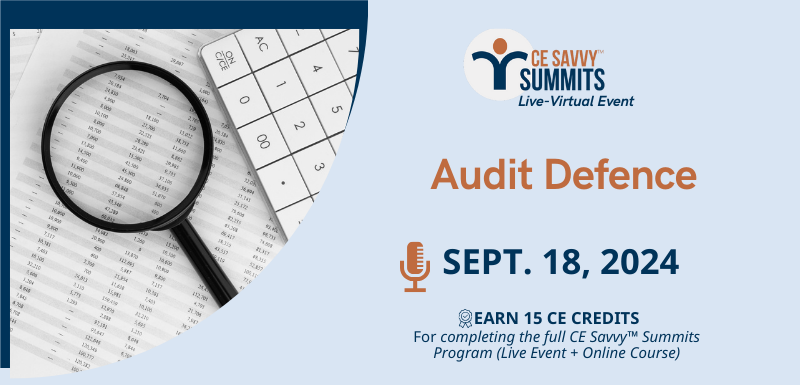Last updated: September 11 2024
The New UHT Still Evokes a Scary Memory

Evelyn Jacks
Halloween is right around the corner, with the annual treats already proliferating in local retail outlets. For most tax professionals, however, this brings a reminder – if not a recurring nightmare – about the first Underused Housing Tax (UHT) filings which were abruptly aborted by CRA the afternoon of October 31. Since then, more changes to the UHT have been passed into law, specifically in Bill C-69 on June 20, 2024. This brings more certainty to the tax and filing requirements, briefly summarized below, and an audit alert.
How Much is the Tax and Who Pays It? The UHT is an annual 1% federal tax, passed into law on June 9, 2022, affective January 1, 2022. In general it applies to “foreign national” owners of housing in Canada. A foreign national is someone who is not a Canadian citizen or permanent resident.
Unfortunately, however, this tax also applies to some Canadian owners who are considered to be “affected owners”.
Affected Owners. Affected owners are people who are non-residents of Canada and who are not citizens or permanent residents of Canada. They are also trustees of trusts, including bare trusts, partners identified in a land registry system as owners (except specified Canadian partnerships) and some corporations in Canada – those incorporated in a foreign county and some incorporated in Canada that don’t qualify as specified Canadian corporations.
Excluded Owners. It is now confirmed that specified Canadian partnerships, specified Canadian trusts and specified Canadian corporations are excluded owners for UHT filing purposes. In other words, excluded owners do not have to file a UHT return starting with the 2023 calendar year.
But there is an audit alert, however: those individuals did have to file a return by April 30, 2024, for tax year 2022.
Exempt Properties. The following properties are exempt properties for the purposes of filing UHT returns:
- a vacation property that is located in an eligible area of Canada
- a property used as a primary place of residence or for qualifying occupancy
- a property not suitable for year-round use or that is seasonally inaccessible
- a uninhabitable during the calendar year or
- a newly constructed property
Definitions of Specified Canadian partnerships, trusts and corporations. These definitions are important in conversations about rental property ownership by spouses or ownership of  properties within bare trusts, for example. Here are CRA’s definitions:
properties within bare trusts, for example. Here are CRA’s definitions:
A specified Canadian partnership is a partnership whose members are all, on December 31, any of the following:
- excluded owners
- individuals who are citizens or permanent residents of Canada and who would be excluded owners if they were not owners of the residential property as partners of a partnership
- specified Canadian corporations
A specified Canadian trust is a trust whose beneficiaries that have a beneficial interest in a residential property are all, on December 31, excluded owners or specified Canadian corporations.
A specified Canadian corporation is a corporation that is incorporated or continued under the laws of Canada or a province and, on December 31 of the calendar year, is neither of the two following corporations:
- a corporation in respect of which the following persons have ownership or control, directly or indirectly, of shares of the corporation representing 10% or more of the value of the equity in the corporation or carrying 10% or more of the voting rights under all or under some circumstances:
- an individual who is neither a citizen nor a permanent resident
- a corporation that is incorporated or continued otherwise than under the laws of Canada or a province
- any combination of those individuals or corporations
- a corporation without share capital having either of the following:
- a chairperson or other presiding officer who is neither a citizen nor a permanent resident
- 10% or more of its directors who are neither citizens nor permanent residents
Other recent changes. Bill C-69 codified changes which included rules to prohibit spouses from claiming more than one vacation property as an exemption, add new anti-avoidance planning rules and special rules for properties that house employees in prescribed zones or certain condos, depending on ownership.
Bottom line. The UHT is still difficult to navigate, but for the most part, has excluded most Canadian citizens from the mix. That is not to say, however, that asking about real estate and its ownership component should not continue to be an integral part of regular client meetings.
